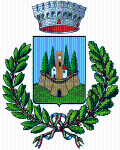Descrizione
Come castello di Collelungo e nel dominio dei Berardenghi è ricordato fin dal 1030, un ospedaletto di Collelungo, poi detto di Valcortise e una chiesa di San Giovanni è menzionata in un regesto del 1132. Questa chiesa viene poi titolata a Sant’Egidio o San Gillo in Vallis Curialis nell’anno 1181. Allo scadere del XII secolo è attestata una seconda chiesa dedicata a San Bartolomeo che nel 1202 viene descritta come unica chiesa, ma successivamente verrà di nuovo menzionata quella di S. Egidio. Alla metà del XII secolo il dominus era Ugo di Vallecuriale o Valcortese e iniziarono i primi contatti con le autorità senesi, ma cinquanta anni dopo,al momento del giuramento di fedeltà e sottomissione, una parte degli uomini di Valcortese ( 22 su 110) si rifiutarono. Questa vicenda si protrasse fino al 1213 quando Ugo e Ranieri si impegnarono a sostenere Siena nelle guerre, già nel 1208 vi era stato un importante avvicinamento che riguardava l’inserimento nel sistema fiscale senese ma vi fu una vera provocazione perché venne imposta a Valcortese la tassa di mille lire ( la più alta che fusse distribuita ad alcuna altra terra. G. Pecci XVIII sec.)
Anche dopo i forti danni subiti dal Castello per un attacco dei fiorentini nel 1209, a metà XIII sec. Valcortese continuava ad essere una delle curie più popolate. All’inizio del XIV secolo il catasto senese censisce a Valcortese, il cassero del Castello e attorno ad esso, 3 borghi e una contrada per un totale di 35 case, 2 chiese, una fornace, un forno.
Nel 1366 il popolo di Valcortese è chiamato a contribuire alla fondazione del Castello della Berardenga e l’anno dopo ad unirsi alla prima comunità, ma il XIV secolo segnò anche il declino del più importante feudo dei Berardenghi. Un episodio accaduto nell’anno 1327, produsse tumulti interni che Siena represse con la pena della forca per diversi giovani, già nel 1342 erano rimasti pochi abitanti e molte case rovinate, per oltre tre secoli non si ebbero più notizie fino al podere Belcortese proprietà delle Monache del Paradiso.
Sono ancora visibili i pochi resti, ma di bella muratura, di una porzione castellana, si possono incontrare salendo a destra dalla Fonte della Monaca fino ad una posizione nord rispetto all’ex podere ristrutturato.
Proprio nella zona della Fonte, ma anche più a nord ovest sono stati ritrovati reperti archeologici di tre siti di epoca basso medievale.
English version:
As the Castle of Collelungo, in the dominion of the Berardenghi it was first mentioned in 1030; a “ospedaletto di Collelungo,” later “di Valcortise” and a church of San Giovanni were mentioned in an 1132 register. The church was later dedicated to Sant’Egidio or San Gillo in Vallis Curialis in 1181. At the end of the 12th century, a second church is documented, dedicated to San Bartolomeo, which in 1202 was described as a single church, but later the church of S. Egidio was mentioned again. In the mid-12th century the dominus was Ugo di Vallecuriale or Valcortese, and the first contacts with the Sienese authorities were made, but fifty years later, at the time of the oath of loyalty and submission, some of Valcortese's men ( 22 of 110) refused. This went on until 1213 when Ugo and Ranieri agreed to support Siena in wars; already in 1208 there had been a significant rapprochement regarding inclusion in the Sienese tax system, but there was some type of provocation, because Valcortese was taxed a thousand lira (“the highest that was ever doled out to any other land” G. Pecci 8th cent.)
Even after the Castle suffered significant damage in a Florentine attack in 1209, in the mid-13th century Valcortese continued to be one of the most populous curias. At the start of the 14th century, the Siena land registry included Valcortese, the Castle fortress and around it 3 hamlets and a neighborhood for a total of 35 houses, 2 churches, a kiln and an oven.
In 1366 the people of Valcortese were called upon to contribute to the founding of the Castello della Berardenga, and the following year to join the first community, but the 14th century also marked the decline of the most important Berardenghi fief. An episode that took place in 1327 caused internal turmoil, which Siena repressed, hanging several young men; in 1342 few residents remained and many cases were dilapidated, and for more than three centuries there was no further documentation of the place until the Belcortese farm became the property of the nuns of Paradiso.
A few remains of very nicely made walls of the castle are still visible if one walks up to the right of the Fonte della Monaca spring, north of the old renovated farmhouse.
Near the spring, but a bit further northwest archeological vestiges of three late medieval sites have been found.
Modalità d'accesso
sempre aperto
Indirizzo
Punti di contatto
Ultimo aggiornamento: 4 marzo 2024, 12:29

